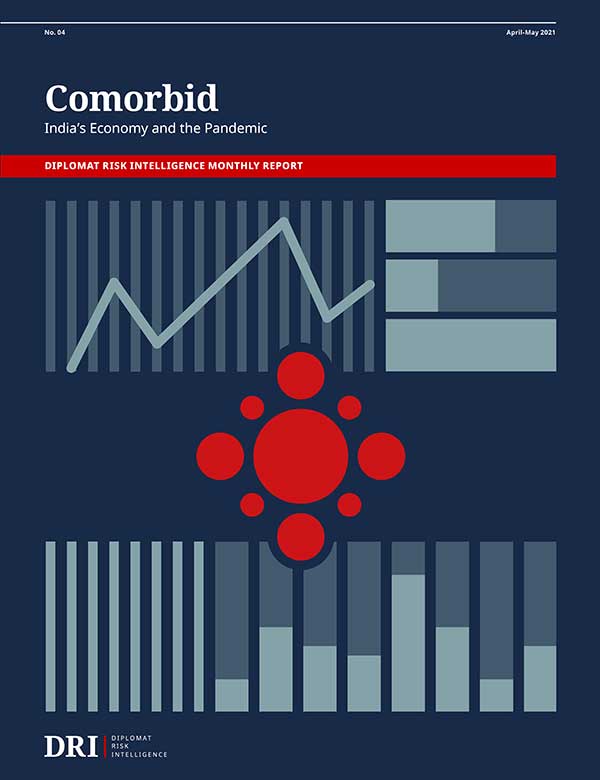| Welcome to the latest issue of Diplomat Brief. This week our top story explores China’s contributions to Cuba’s own brand of “digital authoritarianism.” We also have an interview with Jay L. Batongbacal, an associate professor at the University of the Philippines College of Law, on the role of international law in the South China Sea disputes. |
| Story of the week |  | POLITICS How China Helps the Cuban Regime Shut Down ProtestsWhat Happened: In July, Cubans took to the streets in the largest demonstrations the country has seen since Fidel Castro took power in 1959. The Cuban government moved quickly to block the protests by shutting off the internet – a move right out of China’s playbook for weaponizing the telecom sector to maintain government control. In fact, Chinese investment and engagement have long been a crucial source of support for the Cuban government. Our Focus: “In recent years, as noted previously, Chinese companies like Huawei, ZTE, and TP-Link have further solidified their crucial role in providing Cuba’s internet, including hotspots, telephones, and other infrastructure across the island – the same infrastructure the regime blacked out to squash protests last month,” write Leland Lazarus and Dr. Evan Ellis for The Diplomat. “This is just one example of China exporting ‘digital authoritarianism’ to illiberal regimes across the region.” What Comes Next: The U.S. has strongly criticized the Cuban government for cracking down on the protests. With China on the regime’s side, Cuba – just over 100 nautical miles from the U.S. mainland – has become the latest battleground for what the U.S. frames as a global fight between democracy and authoritarianism. Read this story |
| Behind the News | INTERVIEW Jay L. BatongbacalJay L. Batongbacal, an associate professor at the University of the Philippines College of Law and the director of the university’s Institute for Maritime Affairs and Law of the Sea, on the legacy of the Philippines’ arbitration case against China on the South China Sea: “While the Philippines has not lost anything legally, the sad reality is that it has undoubtedly lost, and probably still is losing, physical resources and habitats on account of China’s retaliatory behavior and destructive activities.” Read the interview |
| This Week in Asia | Northeast Asia What’s Next in China’s Tech Crackdown?In late July, China’s new draft regulations on private tutoring dealt a heavy blow to the education tech industry. That comes after a crackdown on financial technology companies, and Beijing may not be done yet – there’s growing speculation that the gaming industry is next in the crosshairs. Find out more | South Asia Pakistan’s Women Demand SafetyThe brutal killing of an ambassador’s daughter in Islamabad brought public attention to the rising tide of violence against women. Now many Pakistanis are saying enough is enough, and taking to the streets to demand the government act against gender-based violence. Find out more | Southeast Asia ASEAN to Host Week of Virtual SummitsThis week it’s all about ASEAN, with the Southeast Asian bloc holding its biannual Foreign Ministers’ Meeting and its cluster of related summits and talk shops. The rota of summitry began with yesterday’s 54th Foreign Ministers’ Meeting and will include meetings between ASEAN and a range of regional partners including the United States, South Korea, Japan, and China, before winding up on Saturday. Expect the agenda of these meetings to be largely dominated by recovery from the COVID-19 pandemic, tensions in the South China Sea, and the ongoing crisis in Myanmar. Find out more | Central Asia Akayev Returns to KyrgyzstanKyrgyzstan's first president, who was ousted in the 2005 Tulip Revolution, returned to Kyrgyzstan this week to cooperate with Bishkek’s intensifying probe into corruption at the Kumtor Gold Mine, which the government seized control of in May. Akayev remains a free man; other former Kyrgyz officials have not been so lucky. Find out more |
| Visualizing APAC |  | Blankets and sheets form makeshift tents in a Rohingya refugee camp in the Madanpur Khadar area of New Delhi. See the full picture |
| Word of the Week | POLITICS ӘкімAkim, the head of a local executive body in Kazakhstan (the term is used in Kyrgyzstan as well). Elections held on July 25 marked the first time since independence that villagers – who make up 40 percent of Kazakhstan’s population – have been able to directly choose local leadership. Find out more |
|  |




